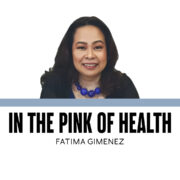In defense of reading

This is the first time that I have been tuned in to World Book Day, which was celebrated last April 23. I have been woefully remiss in the pleasures of reading ever since my academic life have forced me to prioritize technical studies and reports, leaving me burned out from reading as a hobby. It was only when raising a child and needing an activity to while away the time during breastfeeding sessions—something quiet and preferably without screens—that I rediscovered the joy of immersing in stories and ideas.
Reading, as opposed to scrolling on social media or even bingeing on TV shows, helped me feel calm and centered. Even when some of the ideas contained in those books were challenging and thought-provoking, I felt comfort in the fact that I had engaged in meaningful reflection. I didn’t feel the lethargy or stagnation that I sometimes feel when perusing social media or watching shows back-to-back. While being a mother to an infant certainly does not make it possible for me to read uninterrupted, it served as a reliable anchor to me that no matter how chaotic my present moment was, it was only a matter of time before I could read again.
What makes reading so special? Reading is transformative. While a book itself may look dull compared to the vibrant stimulations of an app or a video game, a book forces us to use our cognitions in many ways. Because there are barely any pictures, it forces us to flex our imagination. We visualize the characters and create their voices in our minds. While the book provides detail, our brains inevitably add their own flourish, and we experience the stories in unique ways. This is why movie adaptations tend to be disappointing for readers as they never turn out exactly the way we first experienced them—in our imagination.
Reading may be visual, but it requires integration of multiple senses. It activates not just our visual cortex, but also parts of the brain responsible for hearing, processing of information, and even emotions. It stimulates brain areas related to decision-making and judgment. And of course, it activates our learning pathways. Reading can create new neural pathways and reinforce them. Reading can, literally, change you.
Reading, particularly fiction, also helps develop empathy and compassion. It allows us to imagine ourselves in the shoes of diverse characters. Books, more than any other medium, allow us to experience the inner dialogue of others. It can make us understand why villains do the things they do, why victims feel unable to assert themselves, and how misunderstandings can grow when characters do not listen to one another.
Reading widens perspective. Even within one book, the range of characters (at least if they are written well) will force you to consider multiple perspectives. Social media, with its algorithm of showing you what it thinks you would like, tends to rigidify our perspective. In a way, this is why I prefer reading newspapers the old-fashioned way, in its broadsheet layout, rather than scrolling through the “For You” section of my social media. I tend to find more diverse stories and topics (as well as opinions!). Reading doesn’t just widen perspective, it deepens it. Long-form reading allows for depth and nuance that a social media post just does not. Even with a topic you either already like or agree with, reading allows you to learn more and add layers to your knowledge.
Reading can serve many functions. We look for stories that we relate to, so we do not feel alone. At other times, we look for the opposite such as in fantasy, so that we can have a respite from the real world. We have our go-to stories that ground us when we get dizzy from too many changes around us. As a reader, I rarely yearn for thrillers, as I already witness too much suffering and unfairness from my client’s experiences. I notice that I tend to look for more slice of life narratives with threads of hope woven into them. Happy endings are not necessary, but I do require hope in my stories.
With the many benefits of reading for pleasure, it is important that we democratize this practice. In this column, I frequently call for more libraries. Filipinos need access to books. The Department of Education’s “Catch-Up Fridays” program exposed a severe lack shortly after its introduction: students did not have anything to read during this time. Some teachers reportedly had to personally spend for reading materials. Not all public schools have libraries and if there are, they are lacking in inventory. Moreover, we need access to Filipino authors and books as these will reflect our experience back at us and in turn deepen our understanding of ourselves.
Reading is a pleasure that everyone deserves to experience. It shouldn’t be seen as high-brow or as a luxury. There’s nothing more portable, more universal, and more liberating.
aatuazon@up.edu.ph


















